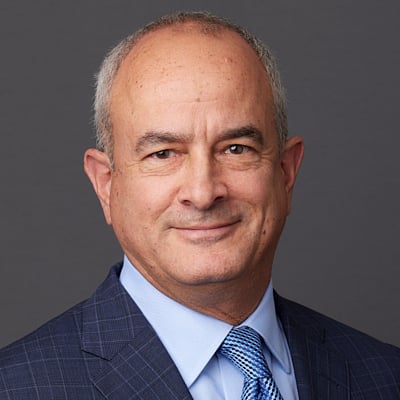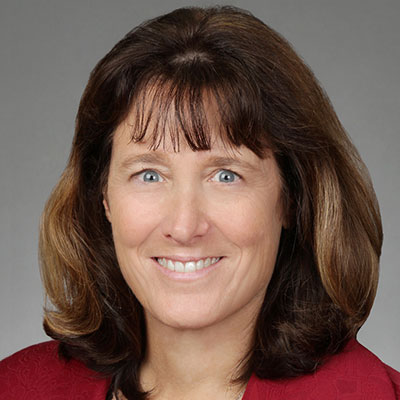Competition Group Of The Year: Kirkland & Ellis
With courtroom victories including the dismissal of Redbox Automated Retail LLC's trade restraint lawsuit against Twentieth Century Fox Film Corp. and the defeat of landmark litigation against Barr Laboratories Inc. over the antibiotic ciprofloxacin, Kirkland & Ellis LLP has earned a spot among Law360's Competition Firms of 2010.
Antitrust attorneys at the firm say that Kirkland's well-known litigation pedigree helped fuel those wins, but also credit the firm's culture of collaboration as one of the key factors to their success.
"Our antitrust practice area is one with somewhat fuzzy edges, but it's those fuzzy edges that make us so strong," partner Karen N. Walker said. "We're very integrated within the firm, and we work together with colleagues in other practice areas in terms of developing clients and attacking problems. Our tradition is that a broad-based practice is part and parcel of what makes us so strong in interdisciplinary matters."
That approach came in handy in the ciprofloxacin litigation, in which Kirkland — whose approximately 150 antitrust lawyers are spread throughout the firm's Chicago, London, Los Angeles, New York, San Francisco and Washington, D.C., offices — successfully set the standard for antitrust review of patent settlement cases under the Hatch-Waxman Act.
In a victory for pharmaceutical companies facing challenges to pay-for-delay deals — under which a brand-name drug company pays a generics company not to make a generic version of a drug — the U.S. Court of Appeals for the Second Circuit ruled that Barr Laboratories' agreement with Bayer AG over the blockbuster antibiotic Cipro did not violate federal antitrust law.
First on initial appeal and again in a Sept. 7 en banc decision, the appeals court held that under controlling case law, established in a suit involving AstraZeneca PLC's drug Tamoxifen, the settlements are not barred by the Sherman Act.
In addition to sidestepping the $180 million in damages claimed by direct and indirect purchaser plaintiffs, the rulings handed a blow to the Federal Trade Commission, which has long argued that pay-for-delay deals are illegal.
Walker, who argued the case for Kirkland, said the litigation represented an important intersection between antitrust and patent law.
"This is a very hot area, because there have been several legislative attempts to put restrictions on patent settlements," she said. "This case was very much being watched by the antitrust and IP bars, and at this point, at every turn we have been victorious."
The firm's symbiotic culture also contributed to a significant win in the closely watched antitrust lawsuit brought by DVD kiosk operator Redbox against Kirkland client Twentieth Century Fox.
Redbox alleged that the studio engaged in a conspiracy with DVD distributors to boycott Redbox in restraint of trade, accusing it of blocking competition and misusing its copyrights by requiring the kiosk operator to sign a revenue-sharing agreement.
Fox denied all liability and damages claims, but while its motion to dismiss was pending, the case was thrown out on April 22 when Redbox agreed to a distribution deal under which it can rent Fox DVDs starting 28 days after their release, among other confidential settlement terms.
"This was essentially a complete win for Fox, because there was no change in the status quo," said partner Mark L. Kovner, who said the case highlighted the issue of how studios can protect their DVD revenue at a time when their business is facing continual threats, including digital distribution and piracy.
In addition to those recent victories, Kirkland is involved in a number of high-profile ongoing competition matters.
The firm represents rental car company Avis Budget Group Inc. in two putative class action suits related to passenger car rentals in California, one of which claims that rental car companies violated federal antitrust law by allegedly agreeing to pass on a California tourism commission assessment fee and airport concession fees to renters of passenger cars at California airport locations.
Kirkland also represents Bain Capital Partners LLC in ongoing private antitrust litigation valued at more than $10 billion alleging that the major private equity firms colluded, through consortiums, to purchase public companies in going-private transactions between 2003 and 2007.
In addition, the firm is acting as trial counsel for General Motors Corp. in a $3 billion multidistrict antitrust litigation involving more than 70 putative class actions in federal and state courts. The plaintiffs in that litigation allege that major car manufacturers conspired to prevent the import of cheaper Canadian vehicles into the U.S.
In 2008, the U.S. Court of Appeals for the First Circuit reversed a nationwide injunctive class and vacated certification of 20 state damages classes, and in 2009, the federal district court entered summary judgment for GM, while the state cases remain pending.
On top of the firm's robust antitrust litigation practice, Kirkland attorneys also boast a wide range of experience in U.S. and foreign merger and acquisition clearances representing public companies and private equity firms in the antitrust aspects of roll-ups, spin-offs and industry consolidations.
Kirkland consistently files Hart-Scott-Rodino Act notifications in more than 7 percent of all transactions reported to the U.S. antitrust agencies each year, and has filed HSR notifications in approximately 9 percent of all transactions reported in the U.S. over the past 12 months.
"For a single firm, that's very impressive," partner James H. Mutchnik said. "We're very proud of it."
The firm, Mutchnik said, had also kept busy in the private equity sector despite the economic downturn, largely due to its all-star client base.
"We're very fortunate to represent good companies with high market shares," he said. "A lot of clients have been sitting on their money, and now they want to make it move, so things turned back for us very quickly. The fourth quarter of 2010 was absolutely rocking."
Last year, Kirkland expedited antitrust clearance for several competitively sensitive transactions in the U.S., the European Union and elsewhere, including its representation of Danaher Corp. in its $1.3 billion worldwide transaction with MDS Inc. and Life Technologies Corp.
That transaction — which was finalized in February — was cleared with a modest FTC consent decree, and included unique product market issues in worldwide life sciences and mass spectrometry markets. A second request was issued, but Kirkland was able to secure clearance without needing to respond to it.
Kirkland also represented Flying J Inc. before the FTC in its $1.2 billion sale of its Travel Center business to Pilot Travel Centers LLC, which created the largest travel center network in the U.S. The settlement entered with the FTC in mid-2010 enabled the deal to close while preserving the economics of the merger.
The firm's strong footprint in Chicago — where many of its antitrust practitioners are based — has also given it a leg up in defending clients before the U.S. Court of Appeals for the Seventh Circuit, where antitrust litigation has become more challenging for defendants and a greater percentage of class action cases are being filed than in previous years.
"We're the biggest firm in Chicago, so by definition we have a fair amount of work there," Kovner said. "But I attribute our success in these matters to our tremendous litigation reputation and presence, the number of people we have who have spent time in the government, and the specialization of our expertise."
Well, that, "and the fact that we're all fabulous lawyers," he said with a laugh.
REPRINTED WITH PERMISSION FROM THE JANUARY 6, 2011 EDITION OF LAW360 © 2011 PORTFOLIO MEDIA INC. ALL RIGHTS RESERVED. FURTHER DUPLICATION WITHOUT PERMISSION IS PROHIBITED



